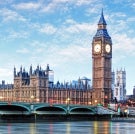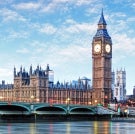An award-winning British cellist who performed at the wedding of the Duke and Duchess of Sussex was forced to postpone a concert after his pre-booked cello was denied boarding by Air Canada.
Sheku Kanneh-Mason, 25, who performed at the Royal Wedding aged just 19, released a joint statement on his social media with his sister, pianist Isata Kanneh-Mason, that they would have to postpone their Toronto show on their winter tour.
The duo were booked to perform at the Koerner Hall on 11 December but had “severe misfortune” with flights while trying to reach the Canadian city.
“First we had delays, then a cancellation, and the day concluded by being denied boarding with the cello – despite having a confirmed seat for it – on a new, final flight into Toronto,” they wrote.
“After nine anxious hours at the airport, we realised our journey wasn’t going to be possible.”
“We can only dream of a time when all airlines have a standardised, global and carefully considered approach to the carriage of precious instruments that are booked to travel in the cabin,” they said, adding they will find a new date in Toronto next year and tagged Air Canada in the post.
The siblings were flying from Cincinnati to Toronto, with a connecting flight in Washington. Their original flight with American Airlines was delayed and then cancelled, so they decided to buy tickets on a new flight to Toronto with Air Canada, also booking a seat for the cello, a spokesperson for the cellist told The New York Times.
However, Mr Kanneh-Mason said that they were given “conflicting information” by the airline, which resulted with staff denying their boarding with the cello at the gate.
Mr Kanneh-Mason’s cello is no ordinary instrument. It was made by Venetian luthier Matteo Goffriller more than 300 years ago and was given to Mr Kanneh-Mason in 2021 on an indefinite loan. It is believed to be worth around €3m ($3.1m), according to a video from Genrman broadcaster Deutsche Welle.
Air Canada told the newspaper that it regretted that the musicians had not been able to travel as planned and that it would be in contact.
“Air Canada has a comprehensive policy of accepting cellos in the cabin when a separate seat is booked for it,” it said in a statement. “In this case, the customers made a last-minute booking due to their original flight on another airline being cancelled.”
Air Canada states on its website that musical instruments can have their own seat purchased for them so long as they meet its size requirements, but the passenger must contact its reservations team as soon as they’ve booked the flight, or at least 48 hours prior to departure.
The number of instruments that can be accommodated on a flight is also limited.
Mr Kanneh-Mason’s management team EMM Ltd/IMG Artists told CNN that situations like these for professional musicians are “frequent and extremely frustrating.”
“It seems that we can arrange and provide all the necessary tickets, required specialist cello bookings, visas, proof of engagements and yet all too regularly there is an inconsistency of experience and training with booking systems and ground staff at airports,” it added.
“We would welcome some constructive discussion with the airline industry body. Whilst Air Canada has now at least refunded all the tickets, we have yet to receive any form of apology for their error which led to over a thousand people having their concert tickets cancelled that evening,” it said.
This is not the first time Mr Kanneh-Mason has had to deal with flight disruptions due to manoeuvring his instrument across borders.
In September 2023, he called out British Airways on social media after he was denied boarding with his cello despite confirming two tickets with the airline beforehand.
A spokesperson for British Airways later said that Mr Kanneh-Mason’s experience was due to “an error.”
The Independent has contacted Air Canada for comment.
For more travel news and advice, listen to Simon Calder’s podcast
Source: independent.co.uk



